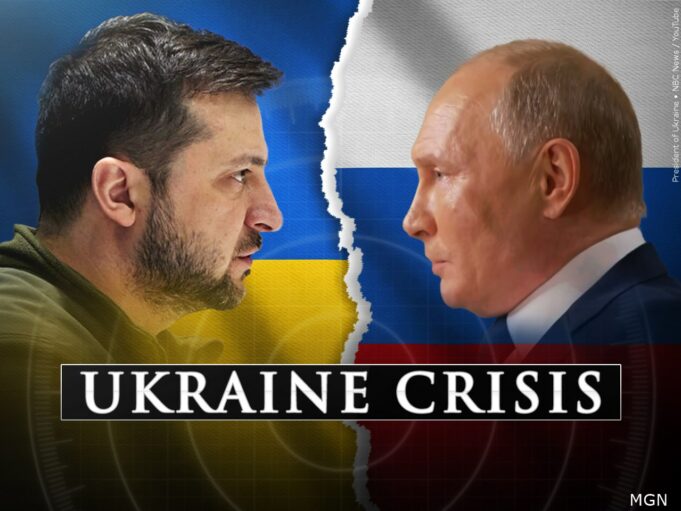As the Russia-Ukraine conflict surges, observers and analysts question how long the war can last while the war’s chief benefactors, the U.S. and European nations face economic woes in the form of high gas prices, rising food costs and record-breaking inflation. Despite a manifest fall of the U.S. economy, the Senate Armed Services Committee still approved a $45 billion add-on to the Biden administration’s budget request of $813 billion for military spending in 2023. The request was the largest-ever U.S. military budget.
The increase comes on the heels of multiple military aid packages to Ukraine estimated around $54 billion since the war started. Pro peace activists argue that such spending is outrageous at a time the U.S. is unraveling from within.
The nations involved, say their aim and endgame is peace. However, the scriptures say, “they have sought peace, and there is none,” because the leaders are perplexed.
The Honorable Minister Louis Farrakhan of the Nation of Islam has warned the nations that a time like this would come: “Pestilence,” “famine,” “wars and rumors of wars,” and the confusion of the nations to find agreement and lasting solutions.
Minister Farrakhan has explained to the world from his teacher, the Most Honorable Elijah Muhammad, the Eternal leader of the Nation of Islam, that the nations have entered the time of Armageddon, which culminates with the war to end all wars.
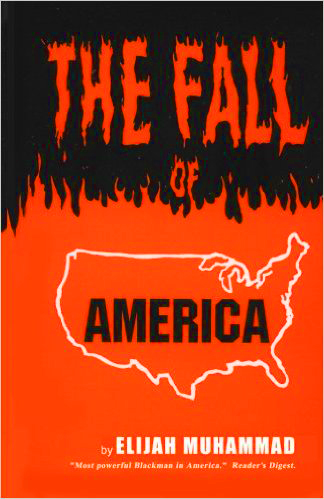
Some analysts agree that the Russia-Ukraine conflict does not appear that it will end anytime soon.
“Early and unrealistic hopes for a quick victory by Ukraine’s forces over invading Russian troops have faded as the reality of an extended conflict sets in. That has a world already suffering the self-inflicted wounds of pandemic policy dreading the cost of continuing war in terms of poverty, hunger, and bloodshed. That’s stressful enough to cause fractures between countries going all-in to support Ukraine and those questioning the wisdom of the effort,” writes J.D. Tuccille in a June 10 article, “Ukraine War Unlikely to End Anytime Soon,” and published on reason.com.
NATO Secretary General Jens Stoltenberg also weighed in. “We need to be prepared that this may actually drag on for a long time,” he told The Washington Post in a June interview.
Mounting problems in the U.S. and abroad
“As we witness our country being marred in systemic violence, racism, poverty, and ecological devastation, it is urgent that we raise our voices against the war on the poor by ensuring that the pentagon’s bloated budget is cut and redirected to human needs like healthcare, education, and a green energy workforce,” said Jodie Evans, co-founder of the peace group Code-Pink, in a statement.

“To end wars and militarism, we need to pull all of our movements together, to cut the pentagon for people, planet, peace, and a future. $857.64 billion for the military, $817.33 billion of which will go to the Pentagon alone is outrageous. Everyone should be taking to the streets and demanding better from our elected officials.”
It’s a money-making operation for the likes of Northrop Grumman and Lockheed Martin and Raytheon, the military industrial complex, not every-day folks, said political analyst, Dr. Wilmer Leon.
“I think people need to be asking themselves, why Joe Biden made a lot of promises when he was running for president. He promised health care … money to HBCUs … free college … none of which he’s been able to deliver on,” said Dr. Leon. “Congress keeps telling us that we don’t have the money,” he added.
The war is in its fourth month and has had an avalanche effect on global oil prices and aggravated a brewing food crisis to worrying levels in nations far beyond the battlefield. All of this raises a critical question of how long the war can be sustained and what does the future hold?
“The war now is becoming unsustainable for the U.S. and for the West,” said Ajamu Baraka, national organizer for Black Alliance for Peace.
“They are depleting their military stockpiles, the economic disruption that it has caused is becoming more problematic for the Western economies … and on the economies and peoples in the rest of the world, particularly in places like Africa,” he said.

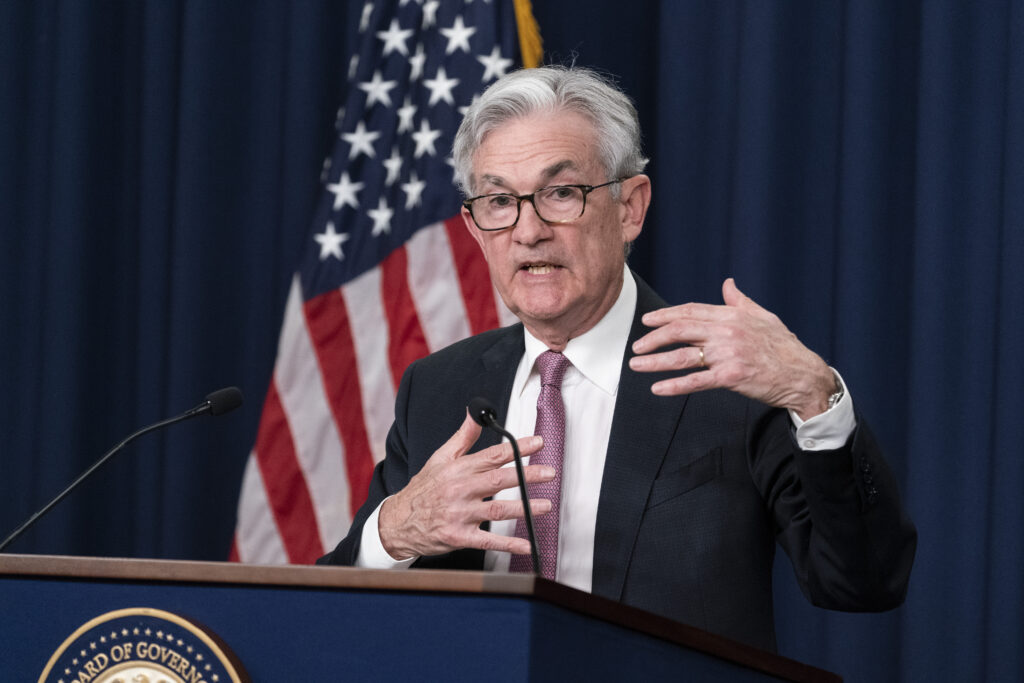
Mr. Baraka pointed out that U.S.-led sanctions on Russia have made it difficult to export fertilizer to the U.S. and effectively reduced Russian grain exports to the rest of the world. The move has exacerbated the rise of food prices as well as a global energy crisis.
He argued that America and Western European powers are holding on to an “illusion” that there will be a reversal on the battlefield that will strengthen a Ukrainian bargaining position if stalled negotiations start again. Mr. Baraka said he sees no evidence that is going to happen.
Another question is the “unity” of America and the Western Europeans holding up if the war continues into months or years. While NATO chief Stoltenberg warned that the war may last “for years,” he reiterated calls for Western countries to provide long-term support to Kyiv.
“We must not weaken in our support of Ukraine, even if the costs are high—not only in terms of military support but also because of rising energy and food prices,” said the NATO head in an interview with Bild, a German newspaper.
If the war lingers for months or years, public support in America would probably fade for supplying weapons and assistance to Ukraine, said John Feffer, director of Foreign Policy in Focus at the Institute for Policy Studies.

“We are facing lots of problems here in the United States and there might be less enthusiasm for supporting Ukraine as time goes on,” added Mr. Feffer.
Europe is somewhat a different situation. Most of the governments there are heavily dependent on Russian imports. They’re doing what they can to sever that dependency.
Mr. Baraka said if war continues, the economic and political instability it will create in numerous countries is unpredictable, particularly in Europe where the conflict added weight to an unraveling situation. “They find themselves in a real predicament … to find a way to try to maintain their global White supremacy,” Mr. Baraka explained.
“This so called … European Alliance, it’s not nearly as cohesive as we’re being led to believe,” added Dr. Leon. “Because Europeans are suffering as it relates to gas and other things and inflation in Europe is incredibly high,” he said.
Dr. Leon told The Final Call if the war drags on for months or beyond, many Europeans will ask themselves, why are they suffering at the behest of following America? He sees the war effects on everyday Europeans as a potential friction point on their governments.
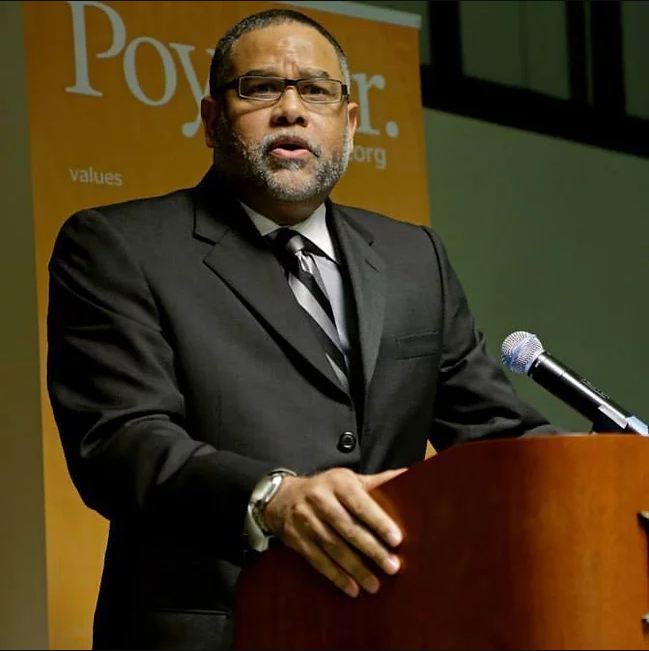
The fallout is being seen in elections like in France where President Emmanuel Macron was slimly, re-elected but lost a legislative majority. It is widely expected that Mr. Biden’s Democratic Party will also lose congressional seats in America’s upcoming mid-term elections.
Rising prices and food shortages
Dr. Leon said America is likely to fall into a recession, people are going to lose jobs, be foreclosed on and evicted, on top of escalating prices of gas and food. “The future right now is not looking really bright,” said Dr. Leon.
In America gas is over five dollars per gallon and industries that rely on diesel fuel for trucks and railway transportation of goods are feeling the pinch. Ordinary people are experiencing shortages of everyday products because of supply chain interferences, stemming partly from the war’s impact on global oil markets.
“The issue of gasoline prices is Russia supplies 12 percent of the world’s crude oil … that’s almost completely off the market now,” said Phillip Braun, professor of finance at Northwestern College School of Management. He was not optimistic things will change soon.

“I don’t think the sanctions against Russian oil will stop. I expect the global price of crude oil to stay elevated and the price of gasoline to stay elevated,” Mr. Braun told The Final Call.
The Food and Agriculture Organization of the United Nations (FAO) estimates that if the war results in a prolonged reduction of food exports by Ukraine and Russia, the number of undernourished people globally could increase between eight million and 13 million people.
The war in Ukraine has added pressure to elevated food prices, with major effects on acute food insecurity, said a recently released report from the FAO and the World Food Program.
Experts in food said there is a series of spillover effects from the war on farm commodity markets with long-term effects, such as the shortage on wheat, corn, soy, and sunflower oil that results in higher prices.
“Where we go from here, of course, matters a whole lot on how the war itself plays out,” said Patrick Westhoff, director of the Food and Agricultural Policy Research Institute at the University of Missouri.
Divine judgment and voices of warning
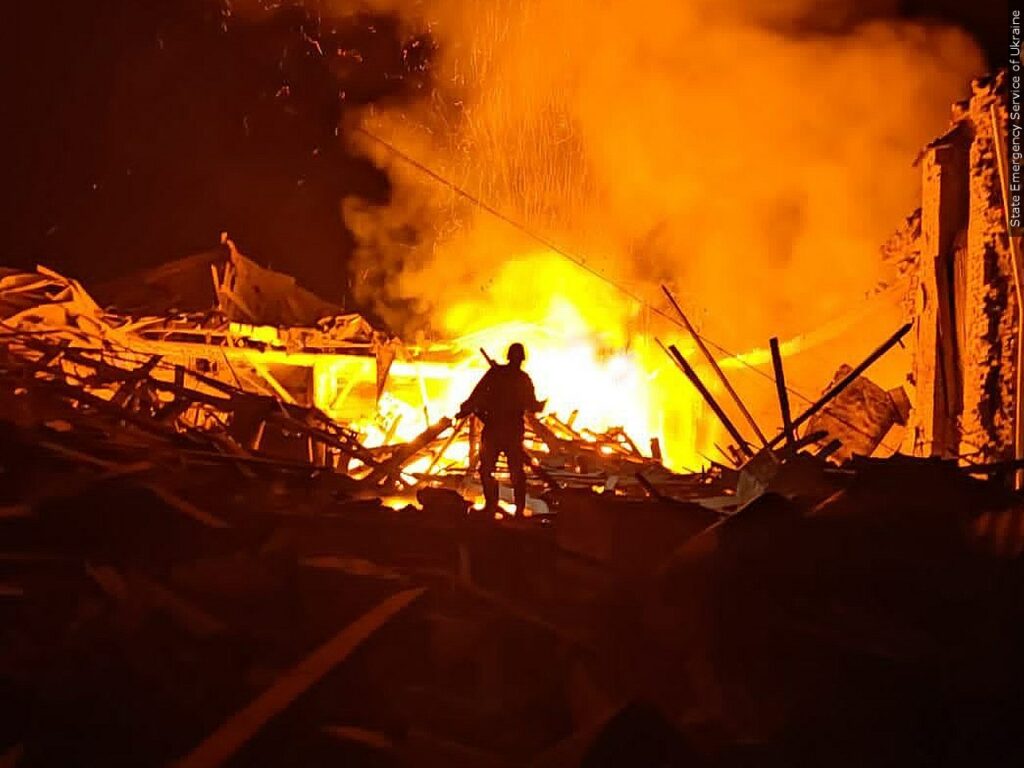
The impact of exports coming out on ships from Ukraine and limited amounts by rail is taking its toll. But Mr. Westhoff said the U.S. has another problem impacting the near future, whether the war ends soon or not, which is the weather. “It’s important to point out that the war in Ukraine is not the only reason we got high food prices,” said Mr. Westhoff.
Other factors contributing to the crisis is the impact of weather such as the smaller than usual crop in South America this past year, causing a significant export of food items. “Of course, everybody’s watching the weather … in this country and elsewhere,” added Mr. Westhoff.
This year’s wheat crop in this country is going to be reduced by unfavorable drought conditions in states like Texas and Kansas, which have not been very good for wheat.
The war compounds problems like this and the longer the conflict lasts, the more severe the impact. “The question is, how long this goes on and whether we see some relief at some point,” said Mr. Westhoff.

While financing war abroad, America is drowning in the largest year over year increase of food prices as measured by the Bureau of Labor Statistics. It’s the highest in four decades.
Mr. Westhoff doesn’t expect the current rate of inflation to continue forever, even if the war continues. “But again, we’re definitely going to have higher than normal food price inflation for quite some time to come,” he said.
William Reno, a political conflict expert at Northwestern University in Chicago, told The Final Call the biggest concern if the war continues unabated over the long term is the potential for escalation into nuclear war.
“One thing we don’t want is for the U.S. and Russia to become involved in direct conflict,” said Mr. Reno. “If you give too much assistance to the Ukrainians, maybe the Russians say, ‘up the ante’ and that’s a big problem between two nuclear armed powers,” he added.
Beyond what the future may hold from the geopolitical and military standpoint, the fighting between White World powers raging in Eastern Europe must be understood in the light of scriptures.
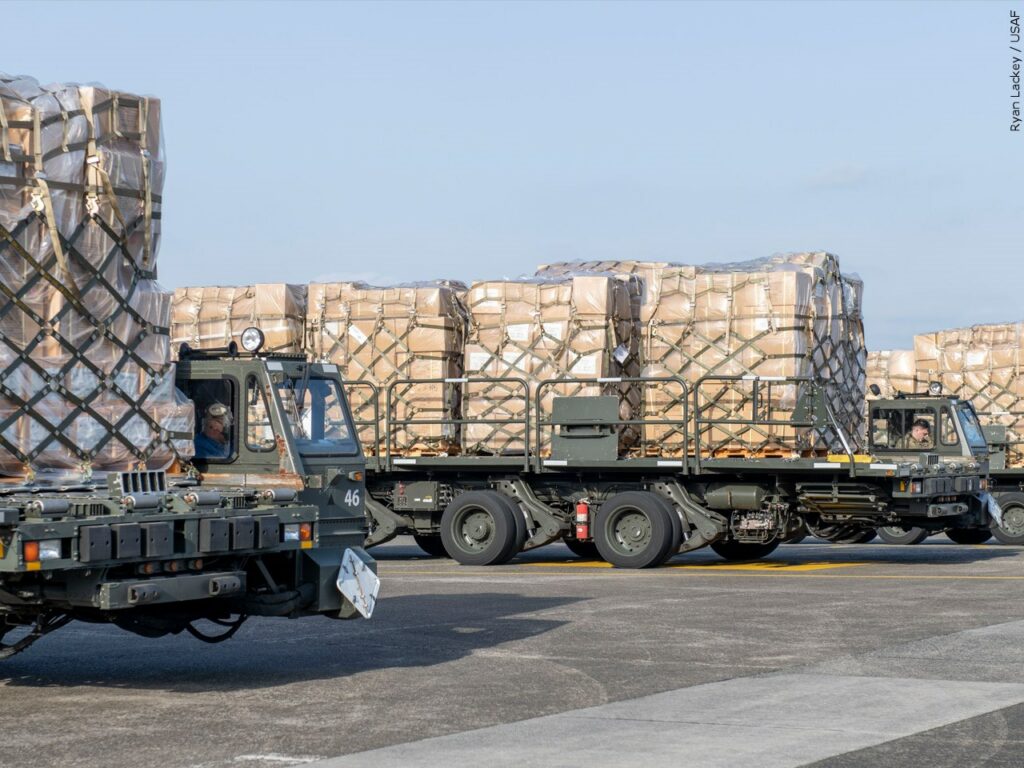
According to the writings of the Most Honorable Elijah Muhammad, White world rule is facing divine judgment from Allah (God) Himself.
“During the whole time of the mischief-maker (devil)—6,000 years on our planet—there has been one war right after another. There has never been any peace among them. You cannot live with them in peace. Peace was never in the nature of the White race,” Mr. Muhammad wrote in his groundbreaking book “The Fall of America,” in the chapter titled, “Fall and Rise of Nations.”
“The White Race was made to destroy the peace from the earth and they have just about destroyed the peace from the earth. The Bible, Isaiah, as it is written, “The people know not the way of peace,” He continued.
“Why should peace-lovers want a world to live in where there is no peace? If peace can be established, the nations want peace, but they cannot have peace until the power of the peace-breaker has been broken,” wrote Mr. Muhammad.
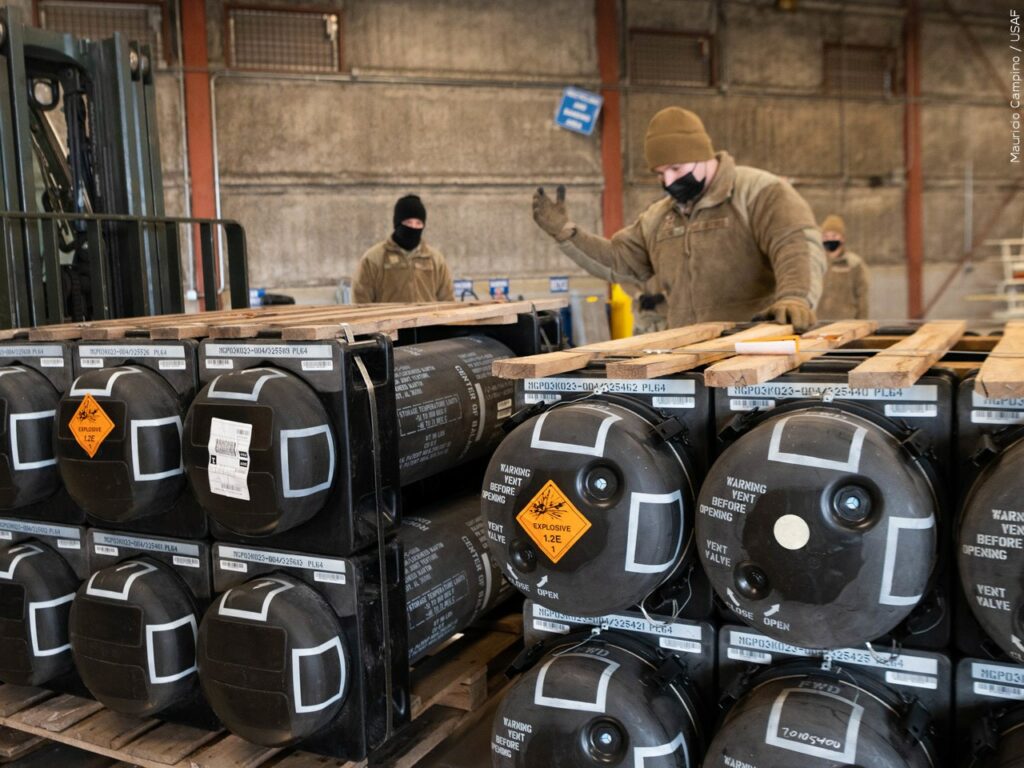
During his Saviours’ Day message, “The Swan Song” in late February, Minister Farrakhan weighed in on the turmoil in Ukraine, and how America would be drawn into a final war that would completely break her power in the world.
“Elijah Muhammad says, after the war and unto the end of the war, desolations are determined,” said the Minister in a near five-hour presentation from the Nation of Islam’s flagship Mosque Maryam in Chicago. He was speaking Feb. 27 of his teacher’s prophetic warning of America’s ultimate fall—which would begin in Europe. Minister Farrakhan issued a warning to America: “You can’t win another war.”
“Russia this will be your undoing, too. See, all White power has to end. The kingdom of God has to be established,” he added. (Final Call staff contributed to this report.)












